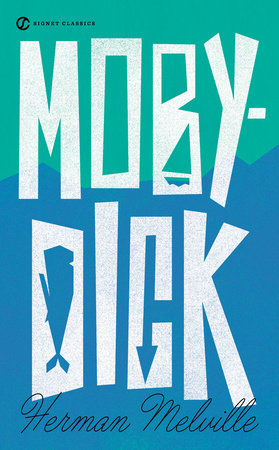
Moby- Dick
Herman Melville, with an Introduction by Elizabeth Renker and an Afterword by Christopher Buckley
Mass Market Paperback
July 2, 2013 | ISBN 9780451532282
AmazonBarnes & NobleBooks A MillionBookshop.orgHudson BooksellersPowell'sTargetWalmart
Ebook
July 2, 2013 | ISBN 9781101637715
AmazonApple BooksBarnes & NobleBooks A MillionGoogle Play StoreKobo
About the Book
At the heart of Moby-Dick is the powerful, unknowable sea—and Captain Ahab, a brooding, one-legged fanatic who has sworn vengeance on the mammoth white whale that crippled him. Narrated by Ishmael, a wayfarer who joins the crew of Ahab’s whaling ship, this is the story of that hair-raising voyage, and of the men who embraced hardship and nameless horrors as they dared to challenge God’s most dreaded creation and death itself for a chance at immortality.
A novel that delves with astonishing vigor into the complex souls of men, Moby-Dick is an impassioned drama of the ultimate human struggle that the Atlantic Monthly called “the greatest of American novels.”
With an Introduction by Elizabeth Renker
and an Afterword by Christopher Buckley


